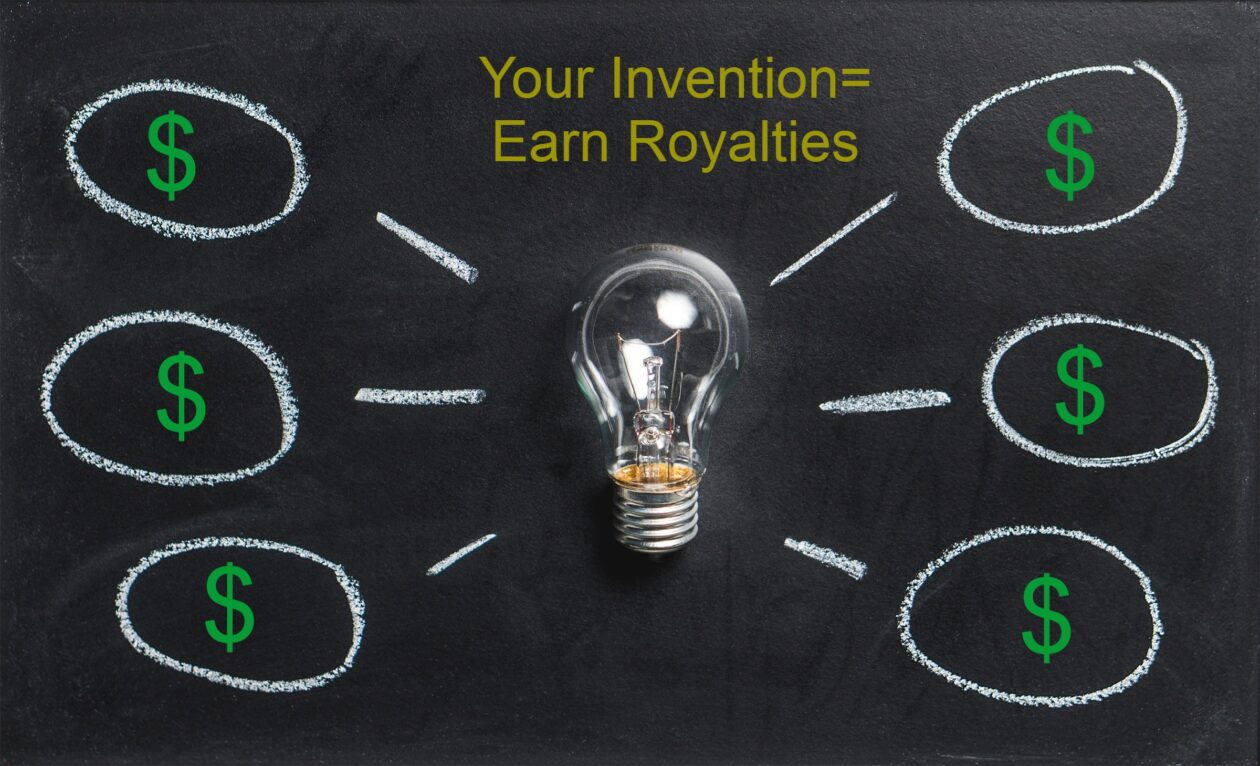
You have a great idea for a new invention and YOU know you can make money. Like many inventors you may have limited funds, are unfamiliar with the manufacturing process, or have many great ideas that you can’t take them all to market.
Licensing your idea can be a perfect solution without investing in manufacturing, distribution, and sales. When you license your invention, you are renting your intellectual property to someone else. They then manufacture and distribute the product to the marketplace. Ideally, both you and the licensee will make a profit. Selling a license to an invention is about the numbers more than it is about the invention. You must show that the invention is profitable.
Protect Your Intellectual Property –Don’t Risk Stolen Ideas
Get protected first. Your invention is your idea, but must be protected before you talk with potential licensees. Work with a trusted patent attorney to identify the right strategy to protect all your intellectual property rights. Your invention needs to be more than an idea. You can’t make money on an idea. An invention is much more than just an idea. At minimum, you need to have a pending utility patent for a company to take your idea seriously. By nature, the patent application process indicates that your idea has been developed and is specific. It has already gone through a rigorous process that is potentially valuable to them. A patent is an asset. It indicates to a company that you are serious about your invention, you have invested in your idea, and maybe they should too!
You will also want an NDA, a non-disclosure agreement. A non-disclosure agreement is a confidentiality agreement used by companies in order to protect privileged information. The agreement is usually between two parties.
Find a Licensee
There are 2 ways to find a licensee, with a licensing agent, or without an agent.
Licensing Agent
A licensing agent will already have professional contacts and processes to get your invention seen. These agents can be found by referral from your local inventor association, tradeshows, industry magazines.
Beware of invention promotion companies. These companies’ sole purpose is to defraud inventors of their hard-earned money. They’ll make all sorts of promises and provide absolutely nothing in return. Too many inventors spend thousands of dollars with these companies. Often the company will charge a small fee upfront, then continue to add fees for various things. In the end, the inventor has no patent (or a useless one), no investors or licensees.
The easiest way to avoid the scam, as advised by the USPTO, is to use the Federal Trade Commission’s website to do a search for the company you are considering. The USPTO also keeps a list of published complaints. If there have been any complaints against them, stay away! Legitimate companies will be upfront and honest with an inventor. Not all inventions are viable.
Secure your invention first (see below). Only work with a reputable patent attorney to handle your patent searches and applications. You will save money (even though it may not appear that way at first) and you will be sure the strategies you use will not lose your patent rights. (Often invention promotion companies send out publications to promote your invention. Any publication is a public disclosure that could prevent you from getting foreign patent rights). Reputable licensing agents typically get paid on commission. If you make money, so do they.
Without an Agent-DIY
Research Companies
Companies that are likely to license your product, are those that are already in the same industry. If you have invented a gadget to make house painting easier, you will look for companies that already sell paint and equipment for painting. Think about what products are similar to yours. Look at their packaging carefully to identify the manufacturers and distributors. Often this information can be found on the back of the item. Other places to find licensees are at tradeshows..
Once you have created a list of potential companies, you will want to learn more about them, their products, if they accept new product submissions from outside inventors, where they sell, and what stores they sell to. Your goal is to find the best fit for you and your invention. If you’ve invented an inexpensive car, you are not going to fit with a luxury car company..
Present Your Idea (Pitch)
Presenting your idea to a company will take leg work. Opening the door with the right person will take time and many calls to reach the right person to present to. Sometimes they will have a location on their website for new product ideas.
Once you are given the opportunity to pitch your idea, this is your time to shine and stand out above all the other inventions they will review. Be prepared with photos, sketches, or prototypes of your product. Provide as much information as possible to the person you’re pitching to. Many experienced inventors even recommend preparing a short video ahead of time, and sharing the link via email. Know your numbers! Show profitability. Research your market, understand key numbers and know how your invention solves a consumer problem.
Licensing Agreement
Obviously the goal is to come to a licensing agreement. These agreements will include, the length of the agreement, how you earn revenue, geographical territories, minimum sales guarantees, responsibilities of each party (one example- who is responsible for maintaining the patent or other intellectual property rights.




